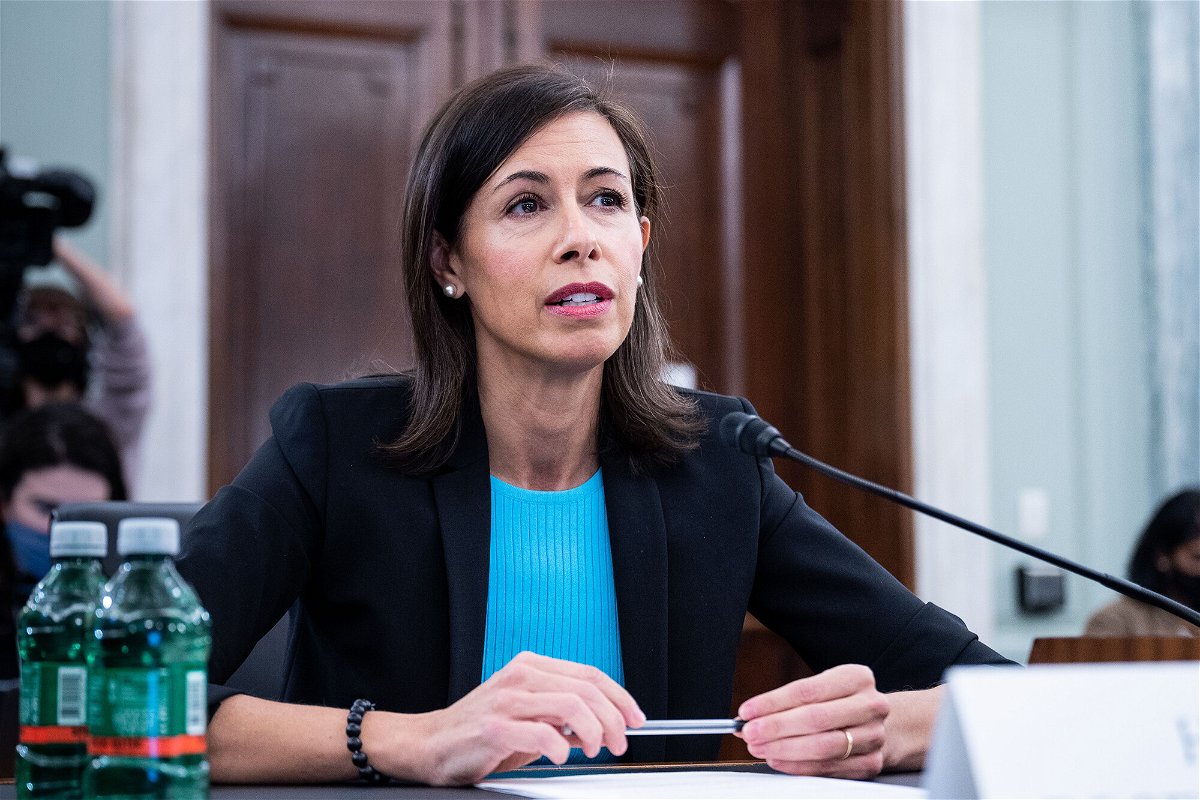FCC probes media and telecom sector for Russia ownership ties

Jessica Rosenworcel
By Brian Fung, CNN Business
The Federal Communications Commission is on the hunt for companies it oversees that may have ownership ties to Russia, in a prelude to possible clampdowns following Russia’s invasion of Ukraine.
The internal assessment, which has not been previously reported or publicly announced, was launched this week by FCC Chairwoman Jessica Rosenworcel, according to a person familiar with the matter.
It follows mounting scrutiny of Russian-backed programming on US airwaves, social media and other channels as the war in Ukraine unfolds. It also comes as President Joe Biden on Thursday announced a range of new sanctions against Russia.
Conducted jointly with the Departments of Justice and Homeland Security, the FCC review covers more than just media entities regulated by the FCC’s broadcast licensing program, the person said. It also covers a vast array of telecommunications and infrastructure companies, including wireless providers, submarine cable operators and foreign telecom services that connect US-international phone calls, the person said.
DHS declined to comment. DOJ didn’t immediately respond to a request for comment.
It is not yet clear how many companies with ties to Russia the review may uncover, the person said, describing the initiative as a “top-to-bottom” effort to “identify the universe of licensees that have Russian ownership that should be on our radar.”
Any Russian-owned companies the FCC identifies as potential security risks to the United States could face tougher scrutiny from regulators, including the potential risk of being ejected from the US market.
The FCC has previously made similar moves with a series of Chinese companies such as Huawei and ZTE, whose networking equipment US national security officials have said could permit Chinese surveillance of sensitive US communications. The companies have repeatedly denied that they facilitate Chinese spying, and attempted to persuade the FCC to reverse its decisions, albeit unsuccessfully. Amid those same concerns, the FCC has also implemented a program to “rip and replace” equipment from US telecommunications networks that it has deemed a potential security risk.
Last year, the FCC adopted rules requiring state-funded media to disclose their foreign ties when broadcasting on US airwaves, a transparency measure implemented after US lawmakers raised concerns about a Washington, D.C.-area radio station airing “Russian propaganda in our nation’s Capital … without informing its listeners that that the broadcast is truly sponsored by the Russian government.” However, the rules are in legal limbo amid a court challenge by US broadcaster groups.
The FCC is also expected to announce, as early as Friday, a new inquiry into internet security that is motivated in part by past incidents with suspicious links to Russia-based actors, the person added.
The probe is expected to gather information from internet service providers and other industry players about the current security of internet traffic routing, with a possible eye toward future federal regulations.
Under normal circumstances, when an internet user seeks to access a website, the requested content gets split up and routed through multiple efficient paths before reaching the recipient. But in recent years, security experts have increasingly warned of attacks that “hijack” one or more of those routes for hackers’ own purposes, enabling them to route internet users to malicious, fraudulent sites instead of their intended destination.
The expected FCC inquiry follows a flurry of recent actions to increase the agency’s profile on cybersecurity issues. Those efforts include partnering with DHS’s Cybersecurity and Infrastructure Security Agency on a campaign known as Shields Up, which specifically advises the private sector on how to deal with hacking threats originating from Russia and other adversaries.
The-CNN-Wire
™ & © 2022 Cable News Network, Inc., a WarnerMedia Company. All rights reserved.